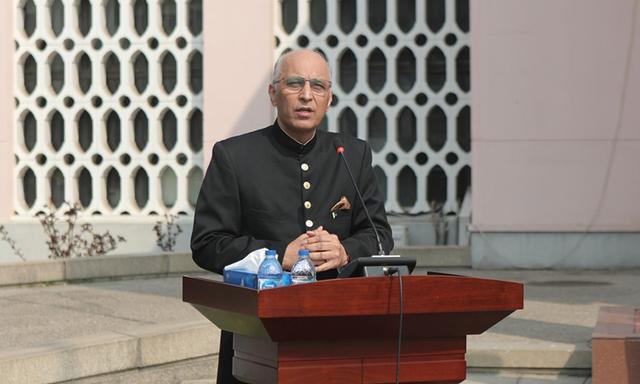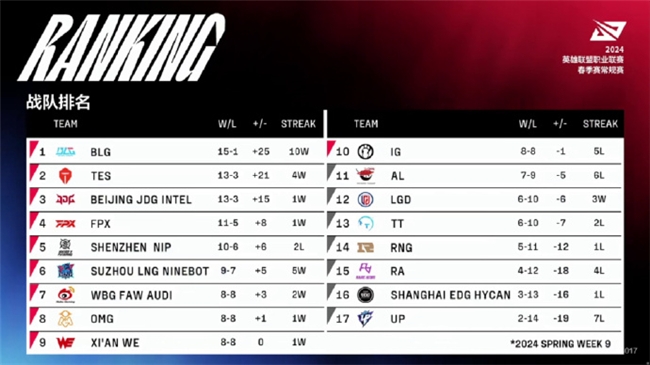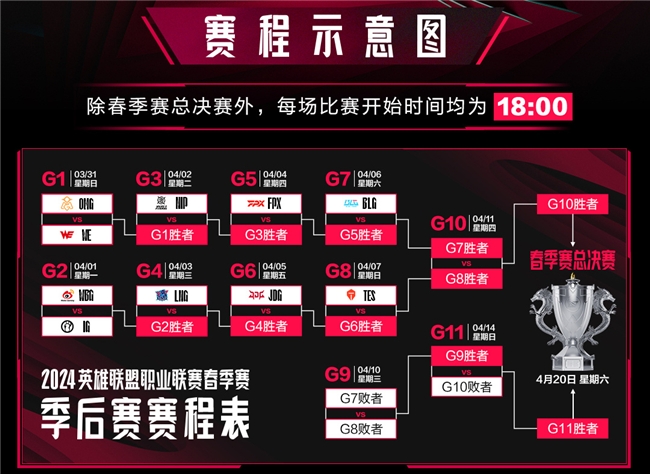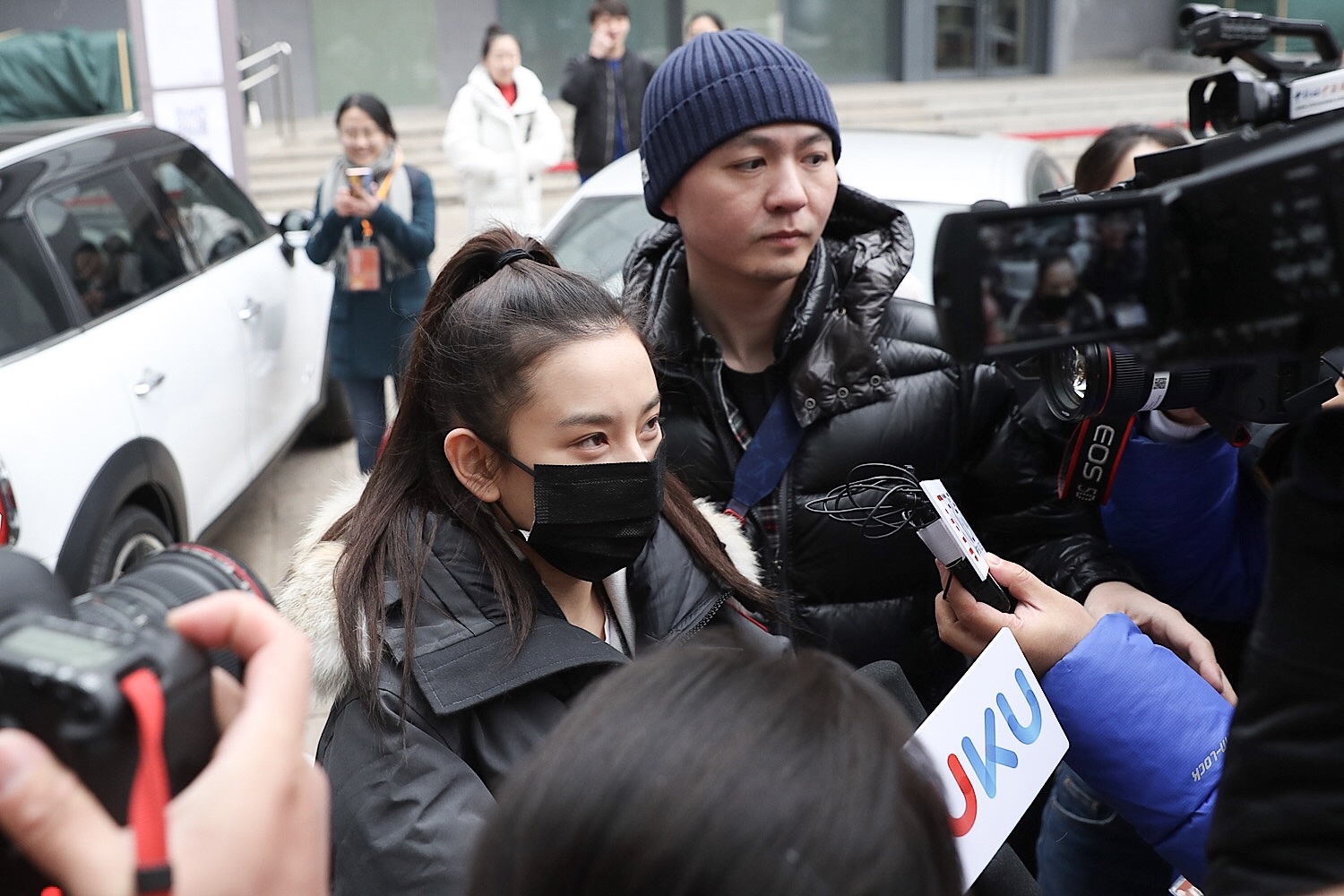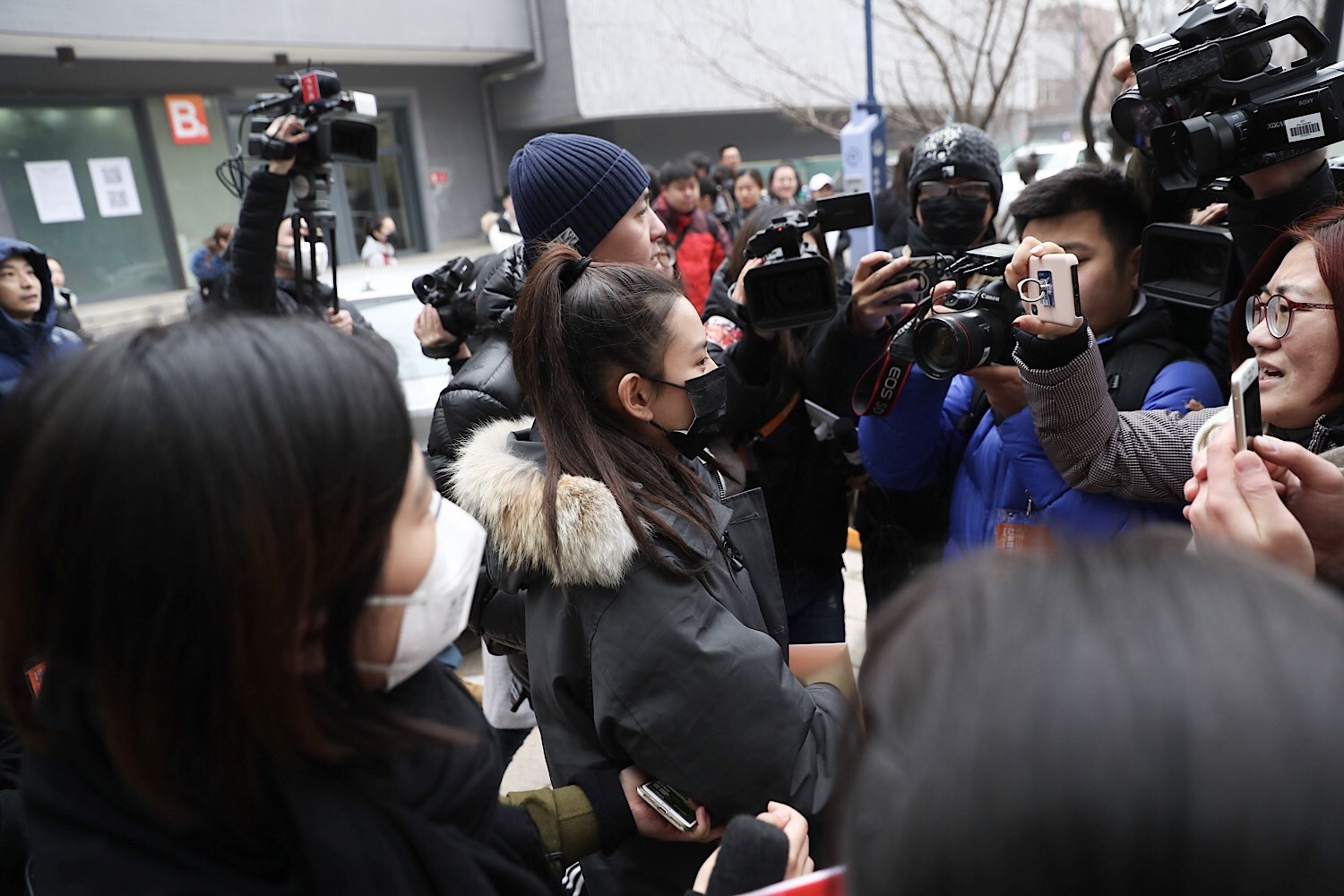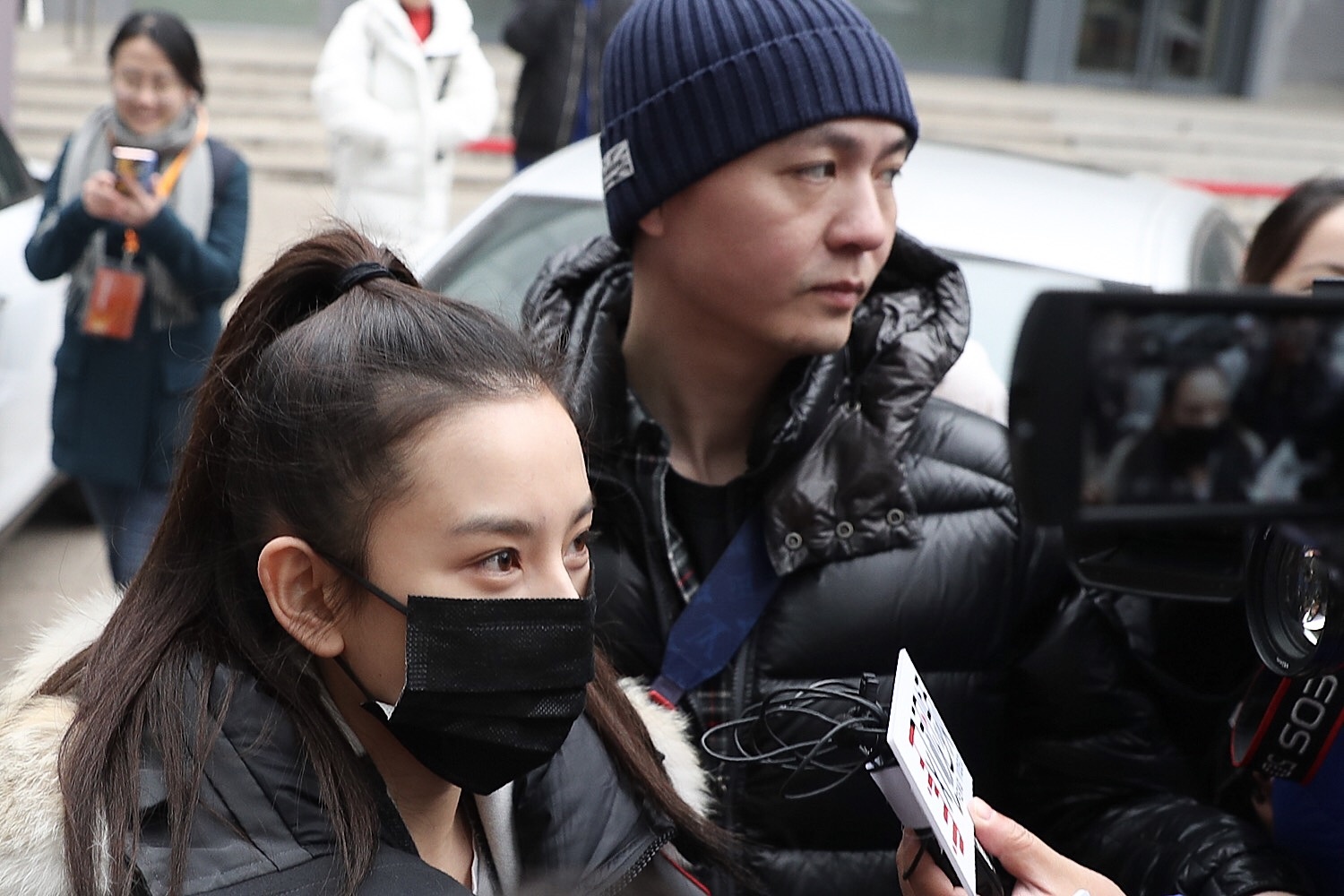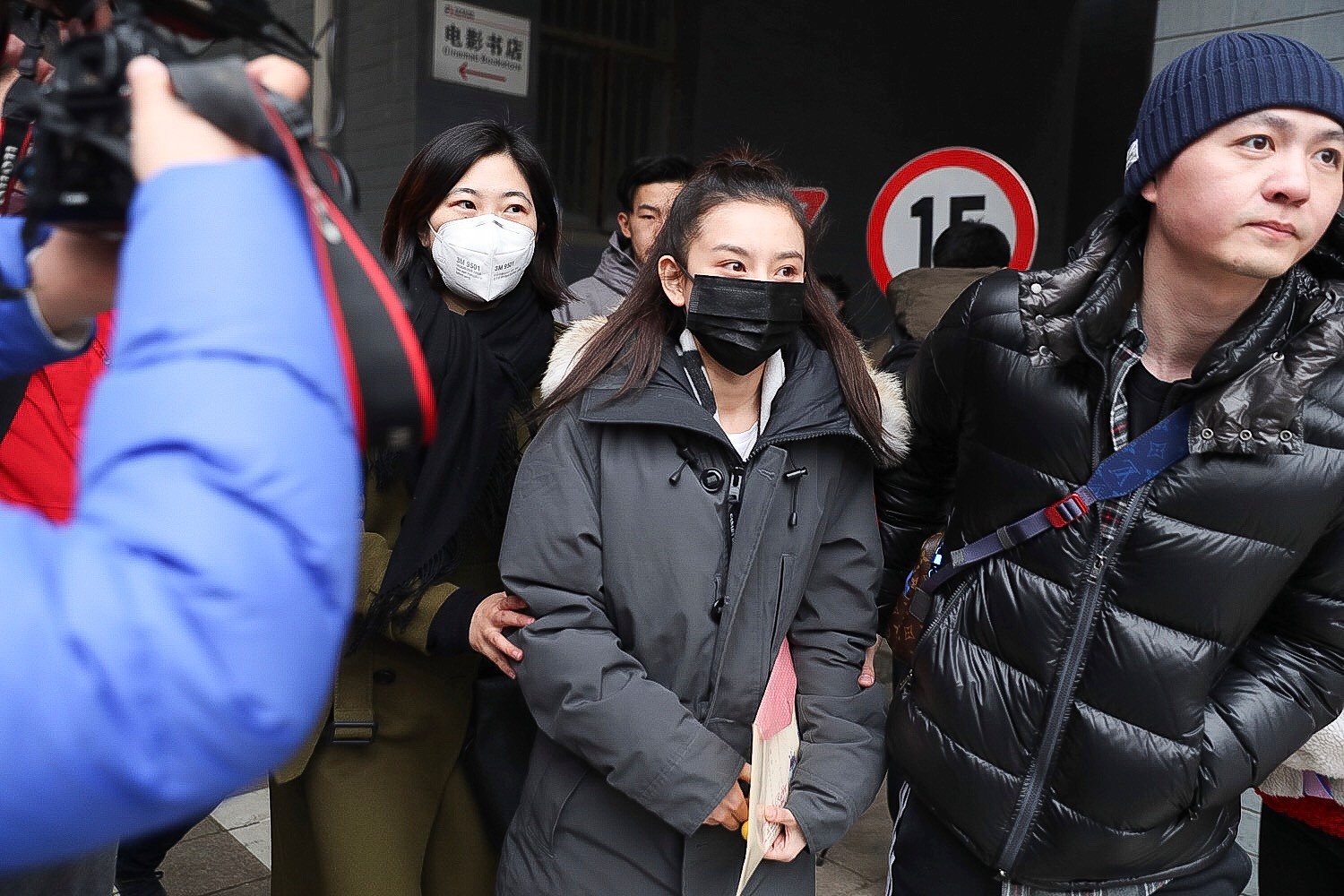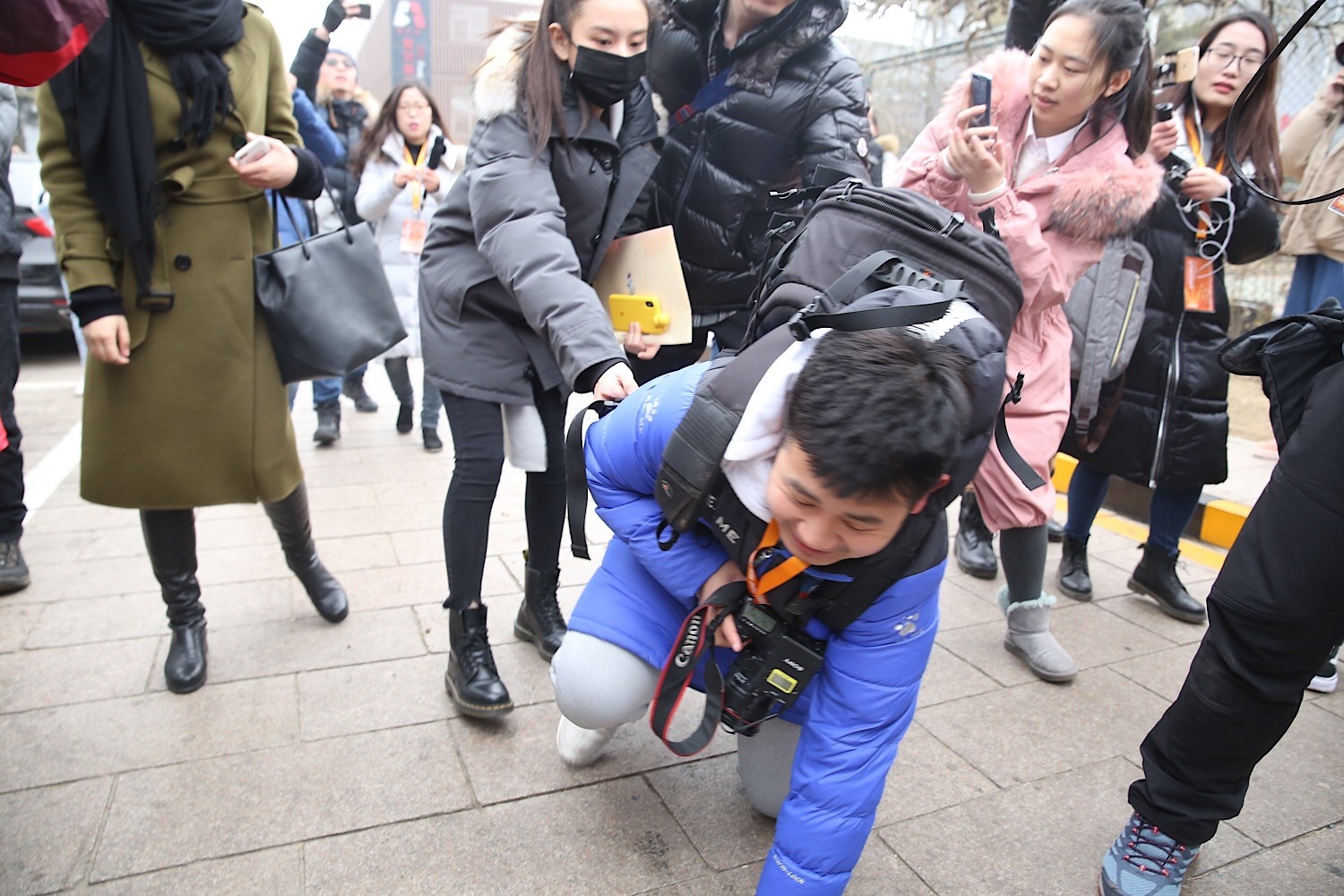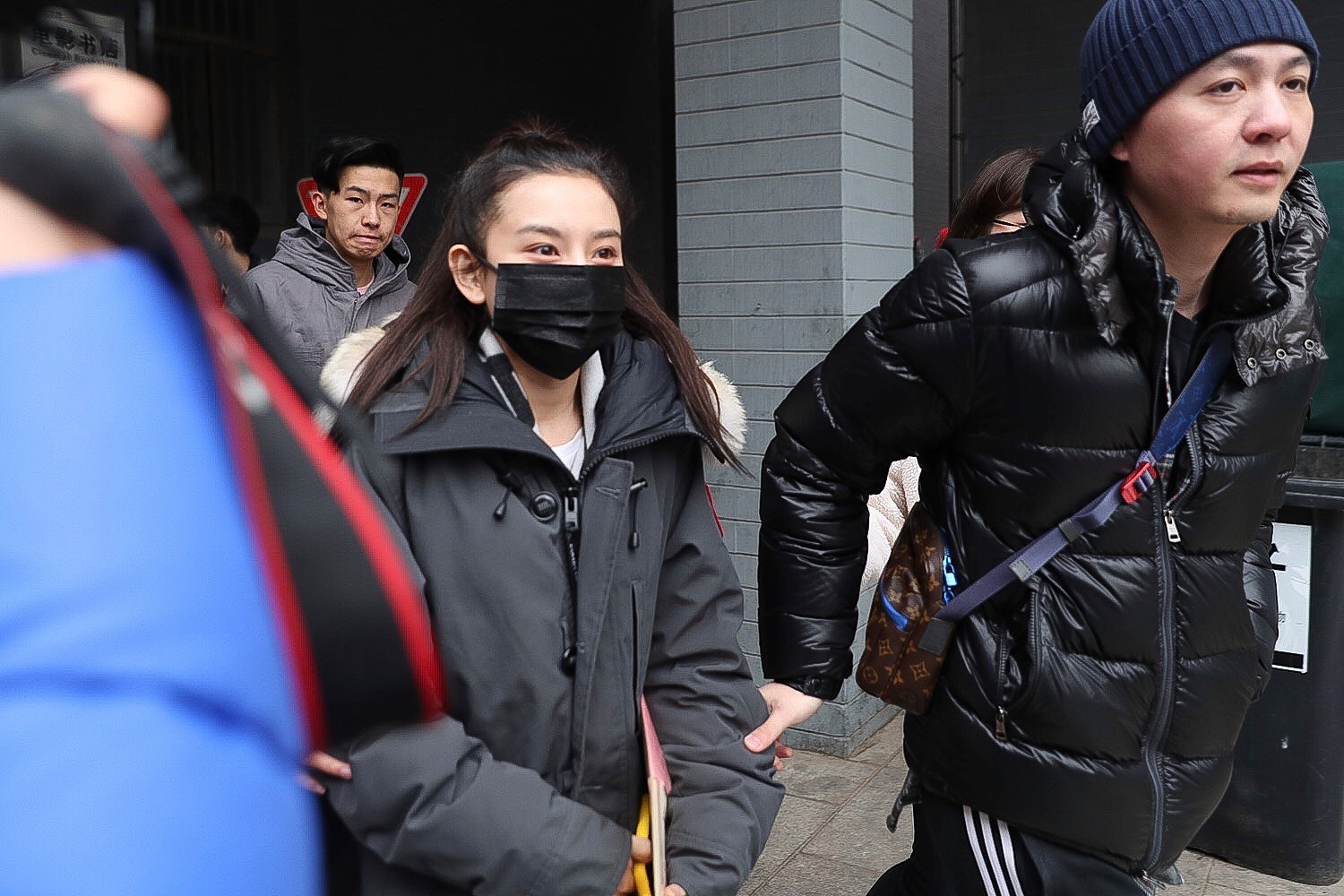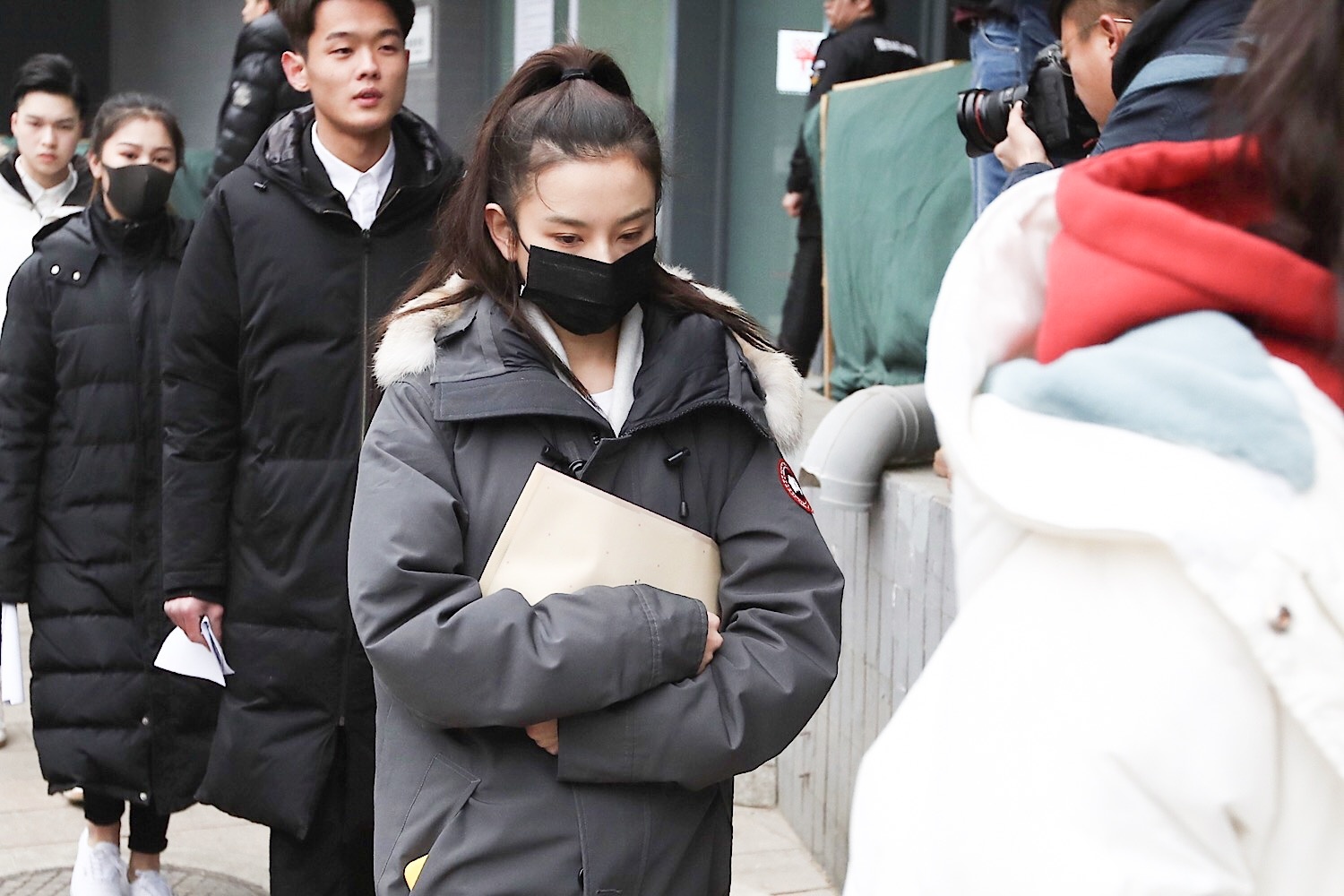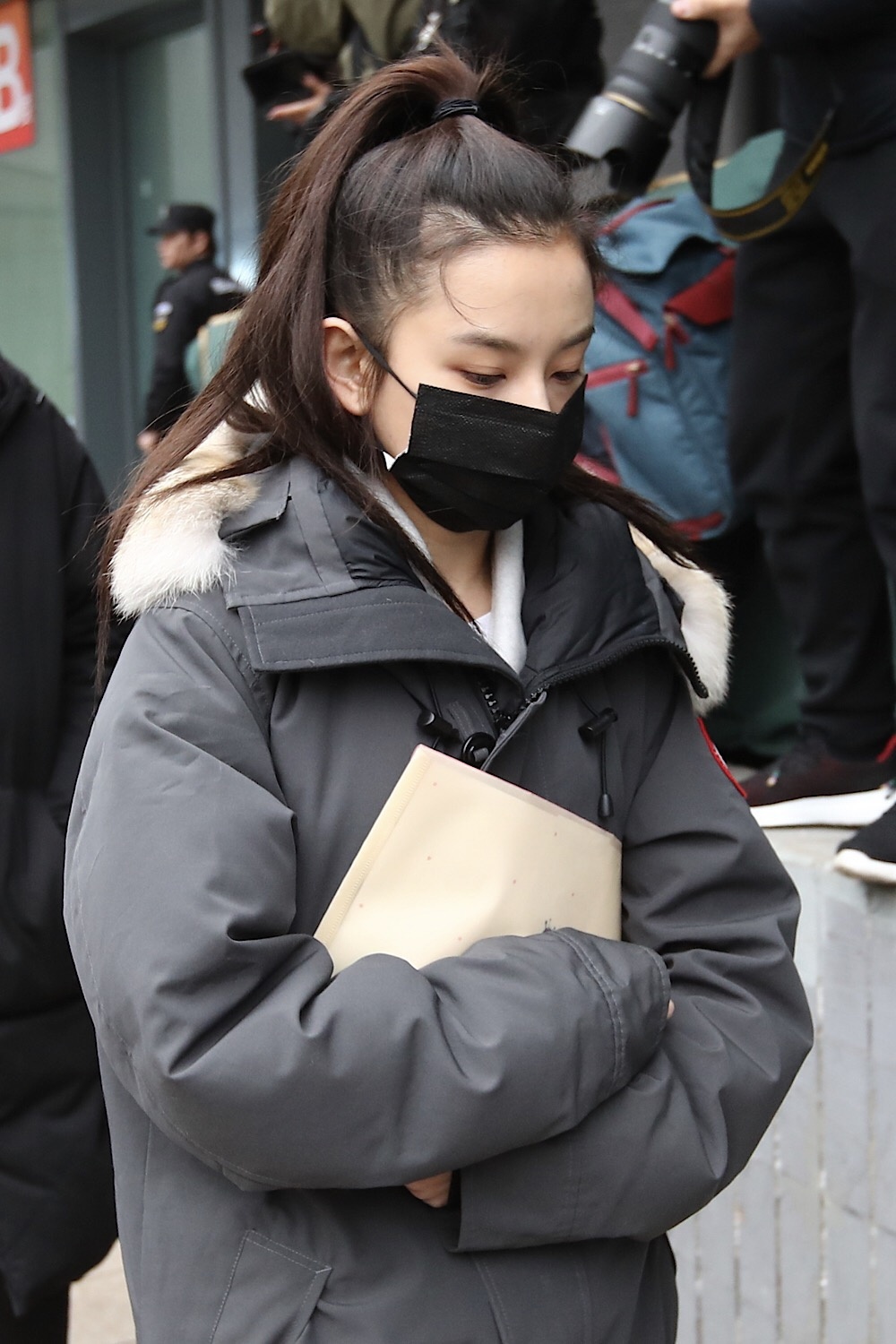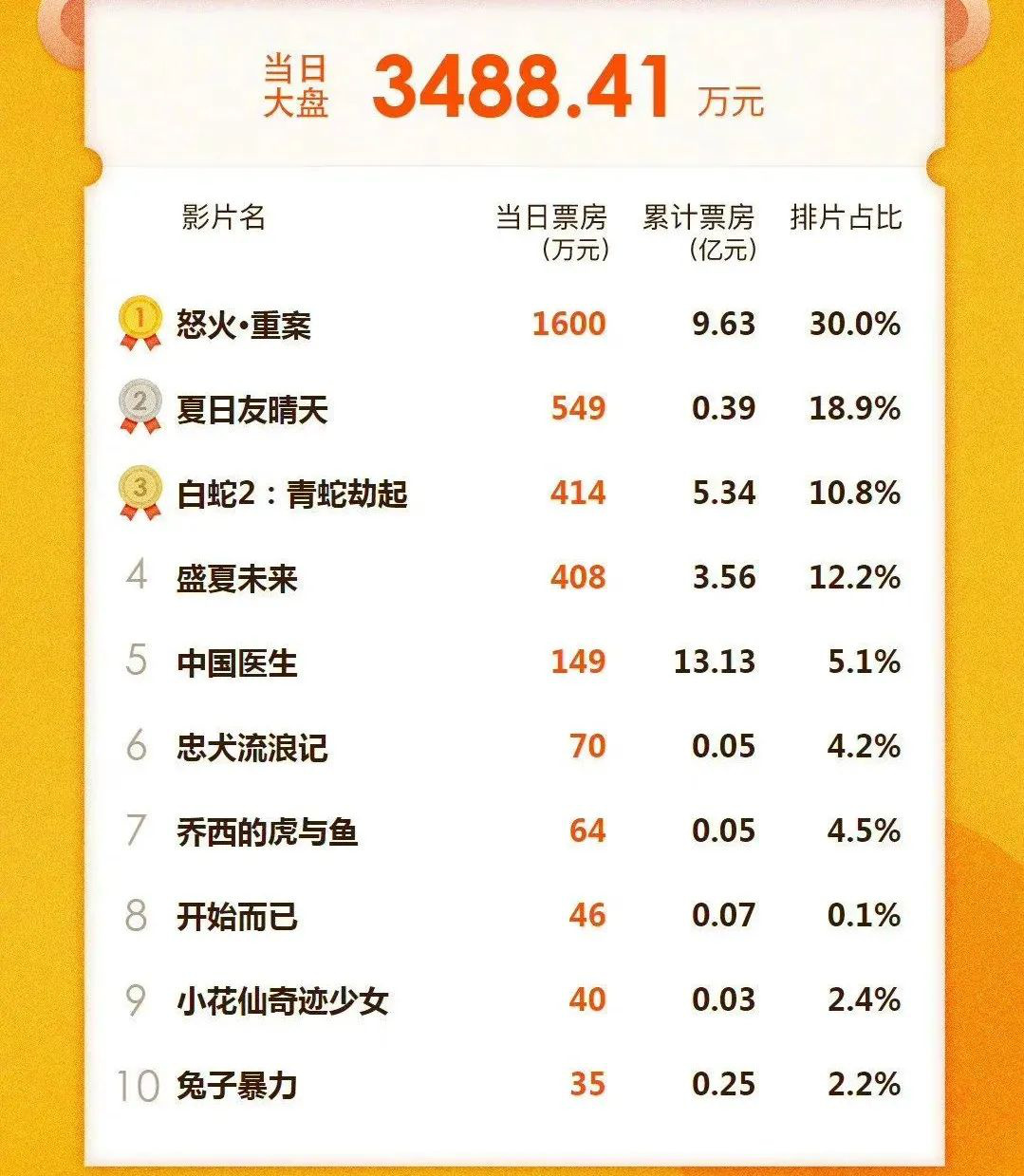Xinhua News Agency, Beijing, February 25th: Open up a bright future for high-quality development — — On-the-spot report on the fifth anniversary of the CPC Central Committee’s plan to promote the coordinated development of Beijing, Tianjin and Hebei with the supreme leader as the core
Xinhua news agency reporter
At the beginning of the new year in 2019, the Supreme Leader General Secretary spent three days in xiong’an new area, Tianjin and Beijing, Hebei Province, and presided over a symposium on the coordinated development of Beijing, Tianjin and Hebei.
This investigation coincides with the fifth anniversary of the implementation of the coordinated development strategy of Beijing-Tianjin-Hebei — —
Five years ago, the CPC Central Committee with the Supreme Leader as the core stood at the height of the overall development of the country and made a major decision to implement the coordinated development strategy of Beijing-Tianjin-Hebei.
In the past five years, with the introduction of important plans and the implementation of major projects, this national strategy is constantly advancing in depth … …
From construction sites to entrepreneurial parks, generate is full of vitality everywhere.
Standing at the height of overall development — —
In the past five years, the CPC Central Committee with the Supreme Leader as the core has always taken a strong mission to plan and promote the coordinated development of Beijing-Tianjin-Hebei, and Beijing-Tianjin-Hebei has shown a brighter development prospect.
"Beijing Bay" bronze sculpture, "Changes of Beijing Ancient City" exhibition area, 1:750 Beijing urban planning model … …
On the side of Qianmen East Street, in the Beijing Planning Exhibition Hall, exhibits show people the past, present and future of this ancient capital of Beijing, and visitors stop and stay from time to time.
Cities are the places where all kinds of essential resources and economic and social activities are most concentrated. To build a well-off society in an all-round way and accelerate modernization, we must grasp the "locomotive" of cities. Since the 18th National Congress of the Communist Party of China, the CPC Central Committee with the Supreme Leader as the core has attached great importance to urban work and the development of the capital and the coordinated development of Beijing, Tianjin and Hebei.
In May, 2013, General Secretary of the Supreme Leader proposed to write a "Tale of Two Cities" of Beijing and Tianjin for socialist modernization in the new era. In August 2013, when the Supreme Leader General Secretary presided over the study of Hebei’s development in Beidaihe, he also proposed to promote the coordinated development of Beijing, Tianjin and Hebei. The General Secretary has repeatedly stressed that to solve the problem of Beijing’s development, it must be considered in the strategic space of Beijing-Tianjin-Hebei and Bohai Economic Zone, so as to open up the main artery of development, more effectively demonstrate Beijing’s advantages and activate Beijing’s factor resources more widely. At the same time, Tianjin and Hebei need to be considered together with Beijing’s development in order to achieve better development.
"Building and managing the capital well is an important part of the modernization of the national governance system and governance capacity" and "the coordinated development of Beijing, Tianjin and Hebei is of great significance, and the understanding of this issue should rise to the national strategic level" … … On February 25-26, 2014, General Secretary of the Supreme Leader made a series of important conclusions when he inspected and presided over a symposium in Beijing, which was even more thought-provoking.
Gyeonggi is an important place, bordering on the Bohai Sea, backed by Taiyue, and carrying the "Three Norths". From the perspective of space, Beijing, Tianjin and Hebei are connected with each other, like a diamond.
However, the poles of Beijing and Tianjin are too "fat" and the surrounding small and medium-sized cities are too "thin", especially the development level gap between Hebei and Beijing and Tianjin is large, the regional development gap is wide, and the urban system structure is unbalanced … …
What kind of capital should China build as it is rapidly moving towards modernization?
What kind of urbanization road should a large developing country with a large population choose?
Entering a new stage of high-quality development, and bidding farewell to the "pie-spreading" development model, how should China’s productivity layout and spatial structure optimization be promoted?
The problem is the voice of the times and the heart of the Supreme Leader General Secretary. Since the 18th National Congress of the Communist Party of China, the General Secretary of the Supreme Leader has visited the Beijing-Tianjin-Hebei region for 7 times and presided over 10 related meetings.
There are marks on the iron, but there are marks on the stone. Once the national strategy is determined, the wheels of endeavor roll forward:
— — In June 2014, the CPC Central Committee approved the establishment of a leading group for the coordinated development of Beijing-Tianjin-Hebei to strengthen the overall guidance for the coordinated development of Beijing-Tianjin-Hebei. The leading group has held many meetings to study and solve major problems in the coordinated development of Beijing-Tianjin-Hebei, organize the formulation of major plans, important policies, key projects, work plans and annual plans for the coordinated development of Beijing-Tianjin-Hebei and the planning and construction of xiong’an new area, and deploy and promote key work. At the same time, the Beijing-Tianjin-Hebei Collaborative Development Expert Advisory Committee was established to conduct research on major issues of coordinated development and put forward advice and suggestions.
"From its establishment to last November, in less than four and a half years, the Advisory Committee has held 102 plenary meetings, twice a month on average." Li Xiaojiang, member of the Advisory Committee and former president of China Urban Planning and Design Institute, reflected the speed and rhythm of the coordinated development strategy of Beijing-Tianjin-Hebei from one aspect.
— — In June 2015, the Central Committee of the Communist Party of China and the State Council issued the Outline of Beijing-Tianjin-Hebei Coordinated Development Plan, which defined the layout idea of "functional complementarity, regional linkage, axial agglomeration and node support" and described the grand blueprint for the coordinated development of Beijing-Tianjin-Hebei.
Subsequently, the "Thirteenth Five-Year Plan" of Beijing-Tianjin-Hebei, the first cross-provincial administrative region in China, and 12 special plans on land, urban and rural areas, water conservancy and health in Beijing-Tianjin-Hebei were issued and implemented. The planning of the Beijing-Tianjin-Hebei intercity railway network and the planning of the Beijing New Airport Airport Airport Economic Zone were successively introduced.
Think deep and benefit far, slow and steady, and make a decision before moving. In the past five years, the General Secretary of the Supreme Leader has attached great importance to the top-level design and planning of the coordinated development of Beijing-Tianjin-Hebei, and repeatedly stressed the need for high starting point planning, high-standard and high-quality construction, multi-regulation integration and a blueprint to the end.
At every important stage and key link of the coordinated development of Beijing-Tianjin-Hebei, the General Secretary of the Supreme Leader personally pointed out the direction for the coordinated development of Beijing-Tianjin-Hebei. The General Secretary has repeatedly stressed that the coordinated development of Beijing-Tianjin-Hebei is a big idea and a big strategy. It is necessary to explore a new way of intensive development by relieving Beijing’s non-capital function, adjusting its economic structure and spatial structure, and exploring a mode of optimal development in densely populated areas to promote coordinated regional development and form a new growth pole.
A grand strategy requires a big pattern and big ideas.
In February 2017, on the occasion of the third anniversary of the Beijing-Tianjin-Hebei coordinated development strategy, the Supreme Leader General Secretary visited xiong’an new area and Beijing, Hebei Province, which are being planned. On April 1st, Xinhua News Agency was authorized to announce that the Central Committee of the Communist Party of China and the State Council decided to set up xiong’an new area.
A model of high-quality development at the forefront of reform and opening up in the new era comparable to Shenzhen Special Economic Zone and Shanghai Pudong New Area, such as spring buds.
Set up xiong’an new area, Hebei Province, and build a centralized bearing place for Beijing’s non-capital functions with high standards and high quality; Building Beijing Sub-center, Optimizing and Reorganizing Beijing’s Functional Layout — — Xiong’an new area, Hebei Province and Beijing City Sub-center, with the trend of Beijing’s "two wings", open up new space for regional development.
Time flies, five degrees in the spring and autumn.
Under the strong leadership of the CPC Central Committee with the Supreme Leader as the core, a beautiful picture of the coordinated development of Beijing, Tianjin and Hebei has been slowly spread out — —
The contours of the one-hour traffic circle and the half-hour commute circle in Beijing, Tianjin and Hebei are increasingly clear; Beijing’s "slimming and upgrading", Tianjin’s "strengthening the body and gathering the nucleus" and Hebei’s "fitness and efficiency" have continuously optimized and adjusted the economic structure; The ecological environment has maintained a good trend, and the scope of resource allocation has expanded; In 2018, the growth rate of per capita disposable income of Hebei residents exceeded that of Beijing and Tianjin, and the widening trend of income gap slowed down … …
At the beginning of 2019, General Secretary of the Supreme Leader once again set foot on xiong’an new area, Hebei Province, Tianjin, which is full of ancient charm, and the brand-new Beijing City Sub-center.
"Beijing-Tianjin-Hebei is like a petal on a flower, with different petals but concentric petals." The words of the Supreme Leader General Secretary are sincere and meaningful.
The "butterfly change" in the ancient capital brought about great changes in the region — —
In the past five years, the CPC Central Committee with the Supreme Leader as the core has always firmly grasped the "bull nose" of relieving Beijing’s non-capital function and explored a way to solve the imbalance of regional development and achieve high-quality development.
The display screens are flashing, and the scene is busy and orderly … …
In the dispatching hall of Beijing Rail Transit Command Center, recalling the moment when the Supreme Leader General Secretary visited five years ago, Zhan Minghui, director of Beijing Rail Transit Command Center, was still a little excited: "At that time, the General Secretary not only cared about the traffic development in Beijing, but also made many important instructions on the traffic integration of Beijing, Tianjin and Hebei."
"Taking traffic integration as the leading field" … … Five years ago, General Secretary of the Supreme Leader made arrangements for promoting the coordinated development of Beijing, Tianjin and Hebei during his inspection tour in Beijing, and put forward a series of clear requirements.
Transportation is just a detail of the general secretary’s series of arrangements and requirements — —
"You can’t have everything, you can’t eat too much, and you will eventually get indigestion." "Things at home always have to be cleaned up. If you want to buy a new sofa, you have to have a place to put it, and you can’t overlap the bedstead" … …
From his two visits to Beijing and his trip to Beijing, Tianjin and Hebei at the beginning of the new year in 2019, General Secretary of the Supreme Leader made many vivid, profound and thorough explanations on the word "reconciliation" — —
"The focus and starting point is to move a surgical operation to relieve the function of Beijing as a non-capital city and solve the problem of ‘ Big city disease ’ Problem ";
"Resolving the function of Beijing’s non-capital is the planning and construction of Beijing ‘ Niubi ’ On this issue, we should further unify our thinking ";
"It is necessary to uphold and strengthen the core functions of the capital, adjust and weaken the functions that are not suitable for the capital, and transfer some functions to Hebei and Tianjin. This is the truth of Dayu’s water control" … …
The hoof is quick and steady, active and steady. The three key areas of transportation, ecology and industry took the lead in breaking through, and the work of resolving Beijing’s non-capital functions was promoted in an orderly manner.
In the past five years, Beijing has formulated and implemented the country’s first catalogue of new industries with the goal of controlling "big city diseases" and revised it twice. The total number of new establishment or change registration businesses has reached 21,600. There were 2,648 general manufacturing enterprises, 581 markets and 106 logistics centers, and regional wholesale markets such as Zoo and Dahongmen were merged, upgraded and relocated.
In the past five years, the development of transportation integration has achieved initial results: the number of Beijing rail transit lines has increased from 17 to 22, and the mileage has increased from 465 kilometers to 636.8 kilometers; Shijike Passenger Dedicated Line and Jinbao Railway have been completed and opened to traffic one after another, and the construction of Beijing-Zhangjia and Jingxiong railways has been accelerated, and the "Beijing-Tianjin-Hebei on the track" is accelerating. The integration and comprehensive utilization of regional port resources have been accelerated, and a number of "broken roads" and "bottleneck roads" have been expanded; The Ring Expressway in the Capital Region officially became a "ring" … …
In the past five years, the efforts of environmental protection, joint prevention, control and ecological construction have been continuously strengthened: the "2+26" urban air pollution prevention and control work plan of Beijing-Tianjin-Hebei has been put into practice, the work of reducing coal burning, changing coal into electricity, changing coal into gas and rectifying "scattered pollution" enterprises has been carried out in depth, key projects such as Beijing-Hebei ecological water source and comprehensive management of Yongding River have been implemented in depth, and Tianjin and Hebei provinces and cities have established a horizontal ecological compensation mechanism & HELIP; …
In the past five years, industrial upgrading and transfer are in the ascendant: the fourth plant of Beijing Hyundai Motor Cangzhou was completed and put into operation, the A330 of Tianjin Airbus was completed and the delivery center was started, the Beijing-Tianjin-Hebei big data corridor projects such as Zhangbei Yunlian Data Center and Chengde Big Data Industrial Park were put into operation, the second phase of Shougang Jingtang started construction, and the Caofeidian 10-million-ton refining project was approved … …
One project landed, one project was implemented, and one industry undertook platform construction. The development of Beijing-Tianjin-Hebei region presented many new features, and economies of scale began to appear.
The ancient capital of a thousand years is changing in butterflies.
— — Fewer people: At the end of 2018, the permanent population of Beijing was 21.542 million, a decrease of 165,000 compared with the end of 2017, and it maintained negative growth for two consecutive years after the first negative growth in 2017;
— — The industry is more sophisticated: the added value of high-tech manufacturing above designated size has achieved double-digit growth, and the contribution rate of superior service industries such as finance, science and technology and information to economic growth has exceeded 60%;
— — The city is more dynamic: in 2018, the number of national high-tech enterprises in the city reached 25,000; On average, 199 innovative enterprises are set up every day … …
"Resolving is a reduction for Beijing and an important opportunity to force intensive and efficient development; For Beijing, Tianjin and Hebei, reconciliation is to optimize the allocation of Beijing’s resource elements in a wider range, realize complementary regional advantages, and promote the formation of a new power source for coordinated development. " Tan Xuxiang, director of the Beijing Municipal Development and Reform Commission, said.
The land of Tianjin and Hebei is changing.
Tianjin’s advanced manufacturing industry and modern service industry grew steadily. In 2018, the added value of high-tech manufacturing and strategic emerging industries increased by 4.4% and 3.1% respectively.
The pace of industrial restructuring in Hebei Province has been accelerated. Since 2014, the production capacity of steel, iron, cement and glass has been greatly reduced, and strategic emerging industries have been growing.
There are both tangible and intangible changes — —
Beijing-Tianjin-Hebei took the lead in implementing the reform of customs clearance integration, and the average customs clearance time was shortened by 41 days; The Ministry of Public Security supports the introduction and implementation of 20 entry and exit policies and measures for Beijing’s innovative development; Positive progress has been made in banking risk sharing, payment and settlement, and mutual exchange of storage in different places in Beijing, Tianjin and Hebei … …
The more profound changes are changes in thinking and innovations in institutional mechanisms.
From Beijing and Hebei to jointly create a management model of "co-construction, co-management and sharing", the first cross-regional management system of "enterprises in Hebei and supervision in Beijing" was opened in China, and the Tongwu Gallery accelerated the pace of integration. In the past five years, the Supreme Leader General Secretary proposed "consciously breaking their own ‘ Three points per acre ’ The requirement of "mindset" is becoming a reality step by step in Beijing, Tianjin and Hebei.
At the beginning of this year, a detail of the trip of the Supreme Leader General Secretary to Beijing, Tianjin and Hebei attracted attention — — Planning Exhibition Center in xiong’an new area and Tianjin Binhai — Zhongguancun Science Park cooperated with the Innovation Exhibition Center, and the general secretary made a long and detailed inspection.
What attracts the General Secretary to stop is the major projects and key projects to be launched in xiong’an new area, and the products such as supercomputers and chips in Binhai New Area.
"We must fully implement the new development concept, adhere to the requirements of high-quality development, and strive to create a benchmark for high-quality development in the new era";
"Independent innovation is an urgent requirement and an important support to promote high-quality development and kinetic energy conversion, and we must create conditions and atmosphere to mobilize the enthusiasm of innovation in all aspects" … …
There is a spring tide in Yanzhao. Taking Beijing and Tianjin as the central cities, leading the development of Beijing-Tianjin-Hebei urban agglomeration and promoting the coordinated development of Bohai Rim region, an important power source for high-quality development is rising in northern China.
Let the people live a better life — —
In the past five years, the CPC Central Committee with the Supreme Leader as the core has always adhered to the "people-centered" orientation, solidly promoted the equalization of public services, and promoted the sound development of the ecological environment.
Build forests first, then cities. Since its establishment more than a year ago, xiong’an new area has adhered to ecological priority and green development, planting 110,000 mu of trees … …
“‘ Millennium Plan ’ , from ‘ Millennium Xiulin ’ The concept and practice of "Start" won high recognition from General Secretary of the Supreme Leader.
"There are 1.25 million local people in xiong’an new area. We should do a good job in this article and let them share the fruits of development. We are not building a beautiful new city, but just building a new city for the people to live a better life. " On the afternoon of January 16th this year, General Secretary of the Supreme Leader came to the afforestation area in the first area of Daqing River, a "Millennium Xiulin", and inquired carefully about the work and income of the villagers involved in afforestation and forest protection, urging them to actively participate and let them benefit from afforestation and forest protection for a long time.
In the past five years, the General Secretary of the Supreme Leader has always been concerned about the masses in Beijing, Tianjin and Hebei.
— — The old neighborhoods in Yuer Hutong, Dongcheng District, Beijing will never forget: In February 2014, General Secretary of the Supreme Leader inspected the renovation of the old city in Beijing and walked into the complex where they had lived for decades.
Guan Shiyue, a 73-year-old resident of No.29 Yard of Yuer Hutong, still remembers the scene at that time: "The general secretary said that the purpose of our visit is to improve your living environment."
— — The villagers in Desheng Village, Xiaoertai Town, Zhangbei County, Hebei Province will never forget that in January 2017, General Secretary of the Supreme Leader brought greetings from the CPC Central Committee to Zhangbei Grassland in the ice and snow. When Xu Hai, a needy person, got married, the general secretary helped him settle accounts and comforted him that the Party and the government would continue to care for families like him and let the villagers live a better and better life.
— — Residents of Beijing Daxing International Airport will not forget: In February 2017, the first stop of the Supreme Leader’s visit to Beijing’s new airport was the resettlement housing construction site. The general secretary is very happy to learn that new green materials are widely used in resettlement houses. He stressed that the construction of the new airport involves the relocation and resettlement of people in more than 10 villages, which is an important livelihood project and should be well controlled in terms of standards and quality.
— — The cadres and masses of Sino-Singapore Tianjin Eco-city will never forget that in May 2013, the Supreme Leader General Secretary came here to listen to the introduction, inspect the planning sand table and build exhibition boards. The general secretary pointed out that an eco-city should take into account the advanced nature, high-end, replicability and popularization, and make convincing answers in terms of embodying people, people and economic activities, and harmonious coexistence between people and the environment.
Deeply concerned and warm. From the complex, to the poor villages, and then to the resettlement housing site; From community volunteers, to courier brothers, to high-speed rail site builders, scenes reflect the people’s feelings of the people’s leaders.
Now, Guan Shiyue, who used to be "unable to leave his hometown", voluntarily applied to vacate the house of the complex and prepared to move to a new house. "Now the new building has a large area and good conditions, and the government can subsidize some money. How nice!"
In the past five years, 18 districts in Beijing and Tianjin have been twinned with 26 counties (cities, districts) in Zhangjiakou, Chengde and Baoding, Hebei Province, working hand in hand for a well-off society.
"It is necessary to intensify efforts to promote poverty alleviation in poverty-stricken areas in Hebei Province, give full play to the role of the Beijing-Tianjin counterpart assistance mechanism, and ensure that all poverty-stricken counties in the Beijing-Tianjin-Hebei region will be uncapped in 2020." Not long ago, General Secretary of the Supreme Leader put forward specific requirements for poverty alleviation in Hebei.
In the past Spring Festival, the residents of Beijing Daxing International Airport spent their time in the newly moved resettlement houses. Guo Feng, who used to live in Nanzhuang Village, Yufa Town, said: "The conditions for living in the building are much better than before. When the airport is built, I will take my family to travel."
"The general secretary asked us to make ‘ A convincing answer ’ , we did it! " Li Dong, deputy director of the Sino-Singapore Tianjin Eco-city Management Committee, said that in the past five years, the Eco-city has thoroughly treated 2.56 square kilometers of sewage reservoirs that have accumulated industrial pollution for more than 40 years, and has embarked on a new road of pollution site management and saline-alkali land transformation and utilization. Public facilities have led to the all-round development of the region, and nearly 100 thousand residents have worked and lived here.
Zhang Yuxin, deputy director of the xiong’an new area Management Committee, still remembers a scene when the Supreme Leader visited the xiong’an new area Planning and Exhibition Center: "In front of the ecological embankment sand table, the general secretary stopped for a long time and heard that the ecological embankment integrates five lanes: bicycle lane, jogging lane, promenade, children’s adventure lane and motor vehicle lane, which is convenient for citizens to travel and have fun. The general secretary nodded frequently and asked from time to time."
Looking at Beijing, Tianjin and Hebei, green is becoming the background of development — — Three provinces and cities have completed afforestation of more than 32 million mu; In 2018, the average concentration of PM2.5 in 13 major cities in the Beijing-Tianjin-Hebei region dropped to 55 μ g/m3, which was 48.1% lower than that in 2013 & hellip; …
Basic public services are closely related to the interests of the people.
Once upon a time, compared with Beijing and Tianjin, Hebei Province had obvious differences in social development, public service level and quality level.
By strengthening government guidance, introducing market mechanism and innovating cooperation methods, a number of key public service projects have been implemented:
— — Educational cooperation is deepening. High-level primary and secondary schools in Beijing and Tianjin cooperate with Hebei Province to run schools across regions, and Tianjin-Hebei Middle School shares Beijing’s high-quality digital resources. In-depth cooperation in higher education has led to the establishment of nine innovation and development alliances &hellip, including Beijing-Tianjin-Hebei industrial colleges and normal colleges. …
— — Medical and health cooperation is close. Beijing and Hebei continue to promote two-way referral and mutual recognition of inspection results. Important progress has been made in the transfer of medical insurance and medical services in different places, and the information platforms of the new rural cooperative medical system in three provinces and cities have been docked.
— — Cultural tourism has been promoted in coordination. Create a brand of public cultural activities such as "Beijing-Tianjin-Hebei Mass Chorus Festival". Tourism "one map, one network, one card" was accelerated, and several tourist through trains in Beijing, Tianjin and Hebei were officially opened … …
Realize the harmonious symbiosis between man and nature, build a modern and livable city, and pursue the all-round development of man … … The people-centered value orientation endows the coordinated development of Beijing-Tianjin-Hebei with new connotation of the times and makes this ancient and modern land glow with warm people’s livelihood.
"Phoenix" spreads its wings to the future — —
Standing at a new starting point, the CPC Central Committee with the Supreme Leader as the core will focus on the long-term, plan the layout of articles and make decisions before moving, and the coordinated development of Beijing-Tianjin-Hebei will surely create new glories.
At the north end of the Millennium Grand Canal and the east end of Baili Chang ‘an Avenue, the administrative office area of Beijing City Sub-center was officially opened a few days ago. The first batch of 35 departments and 165 units of Beijing municipal authorities have completed the main relocation, and a new city is springing up.
East of Taihang Mountain and beside Baiyangdian Lake, the prologue of xiong’an new area’s development and construction begins, and a city of the future is ready to emerge.
At the beginning of the new year, the new progress in the coordinated development of Beijing-Tianjin-Hebei has attracted worldwide attention. The first exhibition of Beijing’s "Two Wings" is leading Gyeonggi to fly to the distance.
Significant achievements have been made in the past five years, but more arduous and arduous tasks are yet to come.
On January 18th this year, in the conference room of the main building of the Beijing Municipal Committee Office Building, which has just been listed in the Beijing City Sub-center, General Secretary of the Supreme Leader presided over a symposium on the coordinated development of Beijing-Tianjin-Hebei.
At the key node where the coordinated development of Beijing-Tianjin-Hebei is about to enter a new stage, the General Secretary of the Supreme Leader once again earnestly entrusts: "At present and in the future, we need to make greater efforts to push forward the work when we enter the critical stage of rolling stones going up the mountain, climbing over the ridge and overcoming difficulties."
How to promote the planning and construction of xiong’an new area with high quality and high standards, and ensure that "a blueprint is carried out to the end" so that xiong’an new area can attract people and retain people?
In the relocation of Beijing municipal organs, can the worries of cadres and workers be solved and the bearing capacity and attractiveness of the sub-center be improved? How to promote the "old city reorganization" in the central city of Beijing?
To relieve the function of Beijing as a non-capital city, how to give full play to the role of the market mechanism, adopt marketization and rule of law, and proceed steadily and orderly?
A series of deep-seated problems, pieces of "hard bones", stand in front of people.
"Hold on tight to ‘ Niubi ’ Do not relax, actively, steadily and orderly relieve the function of Beijing’s non-capital ";
"Maintain historical patience and strategic determination, and promote the planning and construction of xiong’an new area with high quality and high standards";
"Taking the relocation of Beijing municipal authorities as an opportunity to promote the planning and construction of Beijing city sub-centers with high quality";
"Give impetus to reform and innovation, and play an important power source role in leading high-quality development";
"Adhere to the concept of Lucid waters and lush mountains are invaluable assets, strengthen the joint construction of ecological environment, joint prevention and treatment";
"Adhere to the people-centered principle and promote the co-construction and sharing of basic public services" … …
General Secretary of the Supreme Leader put forward six requirements at the Beijing-Tianjin-Hebei Collaborative Development Symposium, which pointed out the direction for the coordinated development of Beijing-Tianjin-Hebei.
In the face of new deployment and new requirements, Beijing, Tianjin and Hebei have responded loudly:
— — The enlarged meeting of the Standing Committee of Beijing Municipal Committee emphasized that it is necessary to further understand the great strategic significance of the coordinated development of Beijing-Tianjin-Hebei, give full play to Beijing’s leading role as a "one core", strengthen confidence, maintain strength, be brave in taking responsibility and overcome difficulties, and promote the coordinated development of Beijing-Tianjin-Hebei to make new and greater progress;
— — The enlarged meeting of the Standing Committee of Tianjin Municipal Committee emphasized that the coordinated development of Beijing-Tianjin-Hebei is a major national strategy personally planned and promoted by the Supreme Leader General Secretary. It is necessary to shoulder Tianjin’s major historical mission and major political responsibility, firmly establish the idea of "playing a chess game", and actively connect with and integrate into the grand strategy and serve the grand strategy;
— — The enlarged meeting of the Standing Committee of Hebei Provincial Party Committee emphasized that all departments at all levels in the province should adhere to the political stance, thoroughly study and implement the spirit of the important speech of General Secretary of the Supreme Leader, and make every effort to promote the coordinated development of Beijing-Tianjin-Hebei and the planning and construction of xiong’an new area to achieve new and greater results … …
Everything in the past is a preface.
2019 is the 70th anniversary of the founding of New China, and it is a crucial year to build a well-off society in an all-round way.
The powerful voice of the Supreme Leader General Secretary echoed in the land of Beijing, Tianjin and Hebei: "The task in the new stage is more arduous and arduous, and we must not relax at all. We need to make greater efforts to promote our work."
The best commemoration of history is to create history.
On January 22, 2019, a calibration plane landed on the west runway of Beijing Daxing International Airport. Before September 30, Beijing Daxing International Airport, which means "Phoenix spreads its wings", will be officially opened to traffic;
At the foot of Chongli Taizi Mountain, the core area of winter Olympics in Zhangjiakou Division of Beijing Winter Olympics is located, and a giant "Phoenix" has quietly taken shape: the athletes’ village, railway station and other facilities of the 2022 Beijing Winter Olympics, which constitute the main body of the "Phoenix", are unfolding and ready to rise.
On the land of Beijing, Tianjin and Hebei, two "phoenixes" are spreading their wings to help Beijing, Tianjin and Hebei fly to a better future! (Reporter Li Bin, An Bei, Kong Xiangxin, Kun Li, Qi Leijie, Bai Lin, Mao Zhenhua)










































